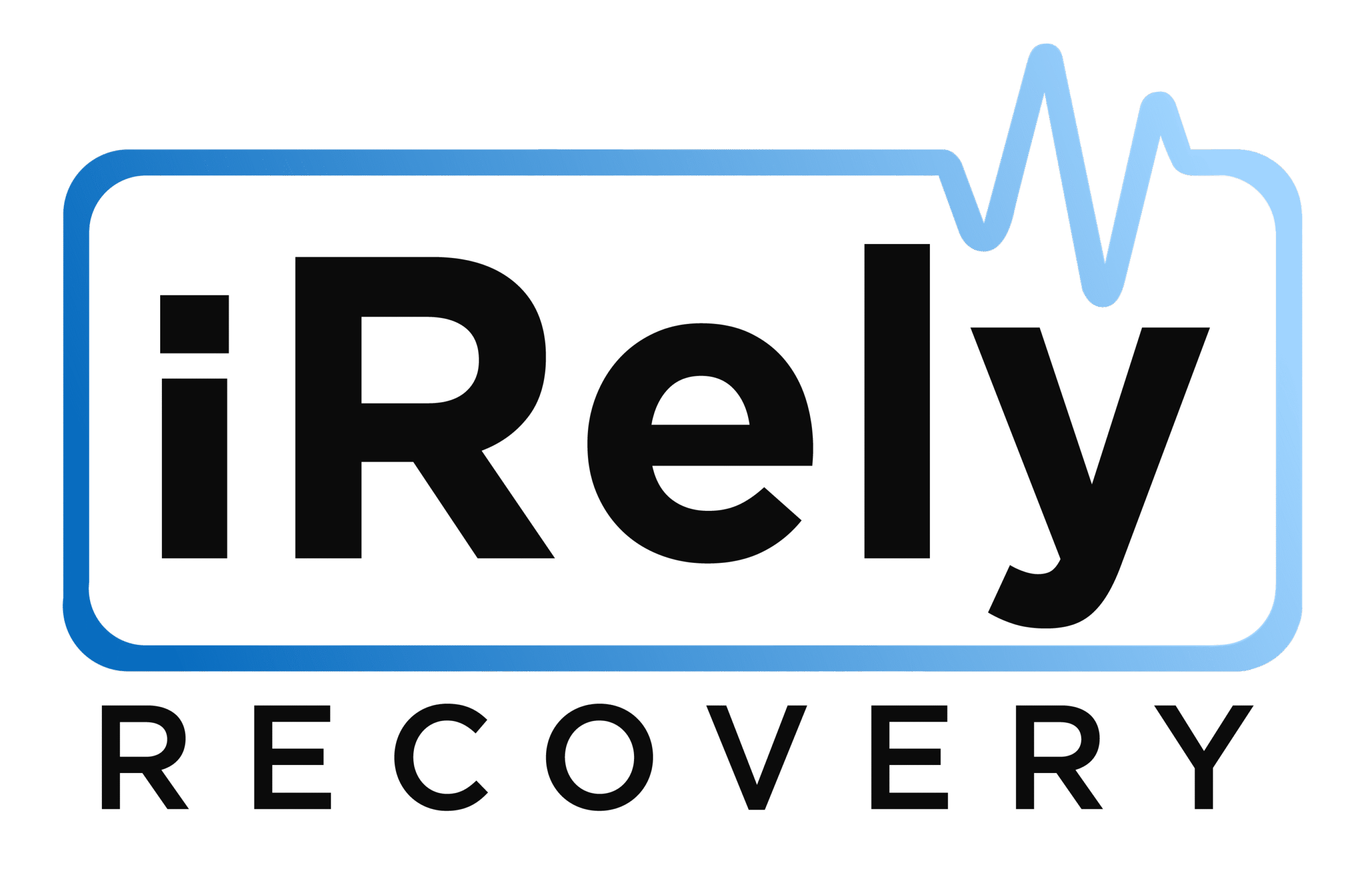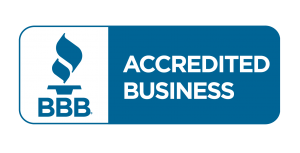Alcohol is a substance that takes over subtly. Some can partake socially, while far too many others lean on the “liquid courage” just to function or feel like themselves. But the fallout is immeasurable, and the cost far too great. Breaking free from alcohol dependency starts with finding a treatment center you can trust.
At iRely Recovery, we deliver reliable, evidence-based care that addresses the root causes of addiction, not just the symptoms. Our nine-bed luxury facility offers medically assisted detox and comprehensive residential treatment tailored to your individual needs. You’ll receive 24/7 medical support, proven therapies like recovery-oriented cognitive therapy, CBT, and DBT, and the kind of genuine care that sets you up for long-term success.
KEY POINTS
- Alcohol addiction is a chronic brain disease causing physical and psychological dependency that disrupts all areas of life through tolerance, withdrawal, and compulsive drinking.
- Chronic alcohol abuse damages vital organs, triggers mental health conditions like depression and anxiety, and creates nutritional deficiencies while destroying relationships and professional responsibilities.
- Alcohol use disorder ranges from mild problematic drinking to severe addiction, with early outpatient intervention preventing escalation to advanced dependency requiring inpatient detoxification.
- Symptoms include tolerance buildup, withdrawal symptoms, loss of control, neglecting responsibilities, risky behaviors, isolation, mood changes, and denial about drinking habits.
- iRely Recovery offers comprehensive alcohol addiction treatment through proven modalities including CT-R, CBT, DBT, family therapy, trauma-informed care, and recovery-oriented approaches for lasting sobriety.
What is Alcohol Addiction?
Alcohol addiction develops when someone loses control over their drinking, creating a physical and psychological dependency that disrupts every aspect of life.[1] This chronic condition changes brain chemistry, making it nearly impossible to stop drinking without professional help. People with alcohol addiction experience withdrawal symptoms when they try to quit, build tolerance requiring more alcohol to feel the same effects, and continue drinking despite serious consequences to their health, relationships, and responsibilities.
The physical effects of alcohol addiction stretch beyond suffering hangovers and making poor decisions. Chronic alcohol abuse damages vital organs, including the liver, heart, brain, and digestive system, leading to serious health complications like cirrhosis, cardiovascular disease, and cognitive impairment.[2] Mental health deteriorates as alcohol disrupts neurotransmitter balance, often triggering or worsening depression, anxiety, and other psychological conditions. Sleep patterns become disrupted, immune function weakens, and nutritional deficiencies develop as alcohol replaces proper nutrition and interferes with nutrient absorption.
Alcohol addiction destroys relationships and social connections, creating isolation when support matters most.[3] Family members often experience emotional trauma, financial stress, and enabling behaviors that inadvertently perpetuate the addiction cycle. Professional responsibilities suffer as performance declines, attendance becomes unreliable, and decision-making becomes impaired. The shame and guilt associated with alcohol-related behaviors create a destructive cycle where people drink to escape negative emotions, only to generate more problems that fuel continued drinking. Breaking this pattern requires recognizing that alcohol addiction is a medical condition, not a moral failing or lack of willpower.
Alcohol Addiction and Abuse
Alcohol use disorder exists on a spectrum, ranging from mild problematic drinking to severe alcohol addiction requiring immediate intervention. Many people struggle with substance abuse patterns that fall between casual drinking and full dependency, experiencing blackouts, risky behaviors, and mounting consequences without recognizing the progression toward addiction. Early intervention through outpatient treatment programs can prevent escalation to more severe alcohol addiction. At the same time, those with advanced dependency often require comprehensive inpatient care and medically supervised detoxification to begin their recovery journey safely.
Recovery from alcohol use disorder often requires coordinated care from specialized treatment providers who understand the complexities of substance use disorders. Effective addiction treatment centers offer multiple levels of care, from intensive residential treatment programs to aftercare services that support long-term wellness.
Take the first step towards recovery
Our admissions office is standing by to help you start recovering.
The Symptoms of Alcohol Use Disorder
Recognizing the symptoms of alcohol use disorder helps determine when professional intervention becomes necessary, as these warning signs often develop gradually before becoming obvious to the person drinking or their loved ones:[5]
- Tolerance buildup: Needing increasing amounts of alcohol to achieve the same effects.
- Withdrawal symptoms: Experiencing shaking, sweating, nausea, or anxiety when alcohol wears off.
- Physical health decline: Frequent illnesses, unexplained injuries, or deteriorating appearance.
- Sleep disruption: Insomnia, restless sleep, or sleeping at inappropriate times.
- Loss of control: Drinking more than intended or being unable to stop once started.
- Neglecting responsibilities: Missing work, school, or family obligations due to drinking or hangovers.
- Risky behaviors: Driving under the influence, unsafe sexual practices, or dangerous activities while intoxicated.
- Continued use despite consequences: Drinking despite legal problems, relationship issues, or health complications.
- Isolation: Withdrawing from family members, friends, or social activities that don’t involve alcohol.
- Mood changes: Increased irritability, depression, anxiety, or emotional instability.
- Preoccupation with drinking: Spending significant time thinking about, obtaining, or recovering from alcohol use.
- Denial: Minimizing drinking habits or becoming defensive when others express concern about alcohol consumption.
Treatment Modalities For Alcohol Abuse
iRely Recovery employs evidence-based treatment modalities specifically designed to address the complex nature of alcohol use disorder and co-occurring mental health conditions. Our comprehensive treatment approach combines proven therapeutic interventions with personalized care, ensuring each person receives the specific tools and support needed for lasting recovery from alcohol addiction:
- Acceptance & Commitment Therapy (ACT): Helps people accept difficult emotions and thoughts while committing to values-based actions, reducing the urge to escape through alcohol use.
- Adventure Therapy: Uses outdoor activities and physical challenges to build confidence, develop healthy coping skills, and create positive experiences without alcohol dependency.
- Cognitive-Behavioral Therapy (CBT): Identifies and changes negative thought patterns and behaviors that contribute to alcohol abuse, teaching practical skills for managing triggers and cravings.
- Dialectical Behavioral Therapy (DBT): Teaches emotional regulation, distress tolerance, and interpersonal effectiveness skills that help people manage intense emotions without turning to alcohol.
- Experiential Therapy: Engages people in hands-on activities like art, music, or role-playing to process emotions, trauma, and relationship issues underlying alcohol addiction.
- Family Therapy: Addresses how alcohol use disorder affects family dynamics and helps family members develop healthy communication patterns and support strategies for recovery.
- Group Therapy: Provides peer support and shared experiences with others in recovery, reducing isolation and building accountability within a supportive community.
- Individual Therapy: Offers personalized one-on-one sessions to address specific triggers, underlying trauma, and personal goals for alcohol recovery.
- Mindfulness-Based Therapy: Develops present-moment awareness and meditation techniques that help people observe cravings without acting on them and manage stress without alcohol.
- Motivational Interviewing: Uses collaborative conversation techniques to strengthen motivation for change and resolve ambivalence about stopping alcohol use.
- Recovery-Oriented Treatment: Incorporates twelve-step principles and peer support approaches that emphasize personal responsibility, spiritual growth, and community connection in alcohol recovery.
- Somatic Experiencing Therapy: Focuses on releasing trauma stored in the body that often underlies alcohol addiction, helping restore natural stress responses and emotional regulation.
- Trauma-Informed Care: Recognizes the connection between past trauma and alcohol use disorder, creating safety and trust while addressing underlying traumatic experiences that fuel addiction.
Frequently Asked Questions About Alcohol Rehab
How long does alcohol rehab take?
The length of alcohol treatment depends on the severity of addiction, individual needs, and chosen levels of care. Most treatment centers recommend a minimum 30-day residential treatment program for moderate to severe alcohol dependence, though many people benefit from much longer inpatient care.
What medications are used to treat alcohol addiction?
Treatment providers use several drugs to treat alcohol abuse as part of medication-assisted treatment programs. Common medications include naltrexone, which reduces cravings and blocks the euphoric effects of alcohol; acamprosate, which helps manage withdrawal symptoms and reduce relapse risk; and disulfiram, which creates unpleasant reactions when alcohol is consumed. These evidence-based treatments work best when combined with behavioral therapy, group therapy, and comprehensive addiction treatment services.
How effective is alcohol treatment, and what are the success rates?
Alcohol dependence statistics show that treatment effectiveness increases significantly with comprehensive, evidence-based approaches and longer treatment duration. Treatment centers that address co-occurring disorders, provide family therapy, and offer relapse prevention programs see higher long-term recovery rates. The recovery journey requires ongoing commitment, but professional addiction treatment dramatically improves outcomes compared to attempting recovery without professional support from qualified treatment providers and recovery centers.
Sources
[1] National Institute on Alcohol Abuse and Alcoholism. (2021). The Cycle of Alcohol Addiction. Www.niaaa.nih.gov. https://www.niaaa.nih.gov/publications/cycle-alcohol-addiction on June 2, 2025
[2] National Institute on Alcohol Abuse and Alcoholism. (2024, June 6). Alcohol’s Effects on the Body. National Institute on Alcohol Abuse and Alcoholism; NIAAA. https://www.niaaa.nih.gov/alcohols-effects-health/alcohols-effects-body on June 2, 2025
[3] World Health Organization. (2024, June 28). Alcohol. World Health Organization. https://www.who.int/news-room/fact-sheets/detail/alcohol on June 2, 2025
[4] MedlinePlus. (2019). Alcohol Use Disorder (AUD). Medlineplus.gov; National Library of Medicine. https://medlineplus.gov/alcoholusedisorderaud.html on June 2, 2025
[5] What Are the Symptoms of Alcohol Use Disorder (AUD)? – Rethinking Drinking | NIAAA. (2020). Nih.gov. https://rethinkingdrinking.niaaa.nih.gov/how-much-too-much/what-are-symptoms-alcohol-use-disorder-aud on June 2, 2025





